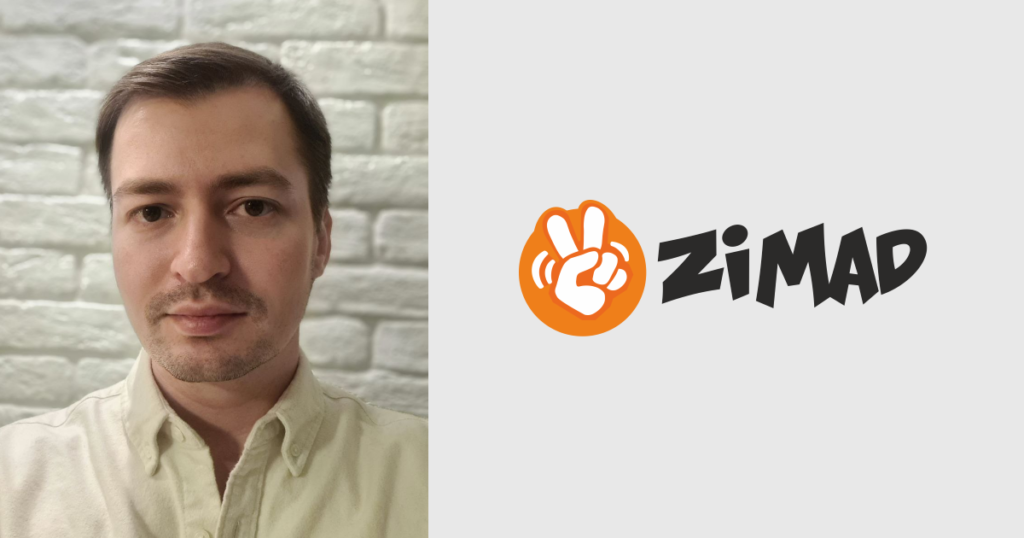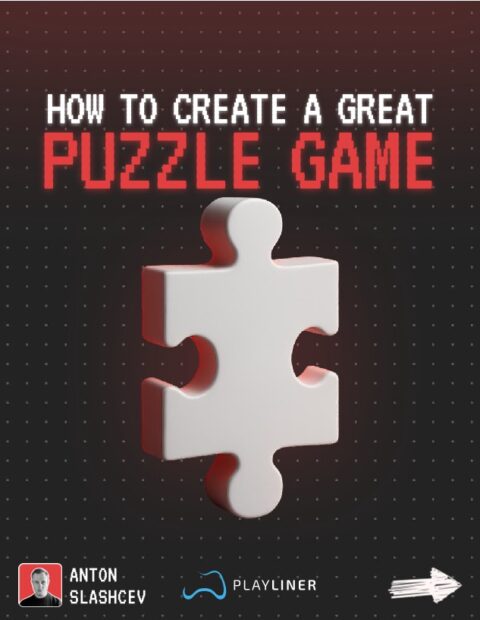
ZiMAD’s 15-Year Journey: Magic Jigsaw Puzzles & Beyond
Journal 50 Ömer Yakabagi August 22
ZiMAD has been a trailblazer in the mobile gaming industry, creating games that captivate millions of players worldwide.
What drives this success?

In this exclusive interview, Dmitry Bobrov, CEO of ZiMAD, shares the journey from its pioneering days in the puzzle game genre to becoming a global leader.
Bobrov offers a glimpse into the company’s innovative development strategies, the challenges of staying ahead in a competitive market, and how ZiMAD continues to push the boundaries of mobile gaming while fostering a culture of creativity and collaboration.
Ready? Let’s go!
Q: ZiMAD has been a key player in mobile gaming for over 15 years. Can you share the story behind its founding?
A: From the very beginning, our inspiration came from the vast potential of the mobile gaming industry. We were, and continue to be, driven by the opportunity to work at the intersection of art and cutting-edge technology. The constant evolution of this industry has kept it dynamic and challenging, fueling our passion to innovate and grow.
Q: How has ZiMAD evolved over the years?
A: Our journey began 13 years ago when we pioneered the puzzle game genre with Magic Jigsaw Puzzles. After testing hundreds of hypotheses, we quickly won the hearts of users. Over the years, we’ve expanded our portfolio across various genres—puzzles, strategy, and arcade games—attracting a wider audience and strengthening our market position.
One of our significant milestones was gaining international recognition, with our games reaching top positions in the App Store and Google Play ratings, driving substantial global user growth. Additionally, partnerships with major industry players like Disney and Marvel allowed us to create unique projects, significantly boosting our brand awareness.
In recent years, we’ve also been actively involved in charitable initiatives, particularly those supporting education and culture. This blend of innovation, strategic partnerships, and community involvement has been key to our success.
Q: The team is the backbone of any company. What’s the culture like at ZiMAD?
A: Our team is incredibly diverse, with specialists from all over the world bringing a wealth of ideas and approaches to game development. There’s no rigid hierarchy—every employee’s opinion matters, and everyone is encouraged to contribute ideas for improving our products.
But above all, what unites us is our love for the games we create; we’re passionate players ourselves.

Q: Magic Jigsaw Puzzles has been a massive hit. What was the inspiration behind it?
A: We wanted to combine the timeless appeal of classic puzzles with modern technology, making them accessible and enjoyable for people of all ages. Our goal was to offer a relaxing yet engaging experience that could be enjoyed anytime, anywhere.
Q: Can you walk us through the development and marketing phases of Magic Jigsaw Puzzles? What were some challenges, and what made the process fun?
A: Developing a smooth and intuitive interface for digital puzzles was a major challenge, as was ensuring seamless gameplay across multiple devices and platforms. We had to extensively test and iterate to create a user-friendly experience that would resonate with players of all ages.
On the marketing front, standing out in the highly competitive mobile gaming market was tough. We developed unique value propositions and compelling strategies to capture users’ attention globally, which also meant localizing content to suit different languages and cultures. Despite these challenges, creating engaging social media content and interacting with our gaming community was incredibly rewarding and a lot of fun.

Q: ZiMAD has been known for its innovative approaches to game development. Could you share some of these innovations?
A: We’ve integrated AI to generate advertising creatives, enabling us to test numerous hypotheses quickly and refine the best options. Additionally, we’ve developed customizable ad funnels tailored to different player types, enhancing our audience segmentation and expanding our reach. This approach ensures that our marketing campaigns are as effective as possible, targeting players with the specific functionalities they’re looking for.
Q: User acquisition is critical in mobile gaming. How do marketing analytics tools help ZiMAD understand and leverage user acquisition trends?
A: We distinguish between internal and external analytics. Internal analytics, drawn from SDKs integrated into our products, helps us optimize campaigns in real-time, while external analytics tracks competitors and influential advertisers. While this provides valuable insights, it’s also a double-edged sword—competitors can quickly adopt successful strategies we’ve pioneered. Despite this, we continue to use these tools to stay ahead in the highly competitive market.
Q: AI seems to be playing a big role in your strategies. How has it impacted your development and marketing efforts?
A: AI has revolutionized our approach by allowing us to personalize, optimize, and automate processes. From creating marketing content to predicting user behavior, AI tools have made our campaigns more efficient and scalable. We’re now able to generate hundreds of ad creatives in just a few clicks and tailor them based on what works best for our audience.

Q: Over the past 13 years, what have been some of ZiMAD’s biggest challenges, and how did you overcome them?
A: The biggest challenge has been keeping users engaged in a rapidly changing market. We’ve overcome this by constantly monitoring trends, introducing new game mechanics, launching strategic collaborations, and expanding our portfolio. These strategies have allowed us to maintain user interest and ensure long-term success.
Q: Can you share a particularly memorable success story from ZiMAD’s journey?
A: The launch of Puzzle Villa stands out. It was an ambitious project combining classic puzzles with a narrative element—something new in the market. We weren’t sure if it would resonate, but the game’s well-crafted story, music, and dialogues struck a chord with users, making it a continuing success. This experience taught us the value of innovation, even within our genre.

Q: What’s next for ZiMAD? Any exciting new games on the horizon?
A: While we’re not ready to reveal specifics, we’re continuing to focus on casual puzzles and board games, aiming to offer unique user experiences and exclusive content to our multi-million fan base. The future of mobile gaming is bright, and we’re excited to continue evolving alongside it.
Q: Mental health is an important topic today. How does ZiMAD approach this, both for employees and players?
A: We’re committed to supporting the mental health of both our employees and our users. We create a supportive work environment and develop games that promote relaxation and mental well-being. For instance, we’ve created a relaxation playlist on Spotify that’s been a hit with both our coworkers and our gaming community. Additionally, we actively participate in Mental Health Month with various activities to raise awareness.

Q: What advice would you give to other studios and players regarding mental health?
A: Studios should foster a supportive work culture, encourage professional and personal development, and create games that enhance mental well-being. For players, it’s important to balance gaming with life, use games as a source of relaxation, and seek community support when needed.
Q: Finally, what do you personally enjoy most about working in the mobile gaming industry? Any fun facts about ZiMAD?
A: I love working with passionate professionals and receiving feedback from our global audience. It’s incredibly motivating to hear kind words from players, which drives us to keep improving. As for fun facts, before we became a mobile gaming leader, ZiMAD was a recognized name in the BlackBerry, Symbian, and Windows Mobile markets. We also developed popular non-gaming apps, interactive children’s books, and utilities before focusing solely on gaming.








